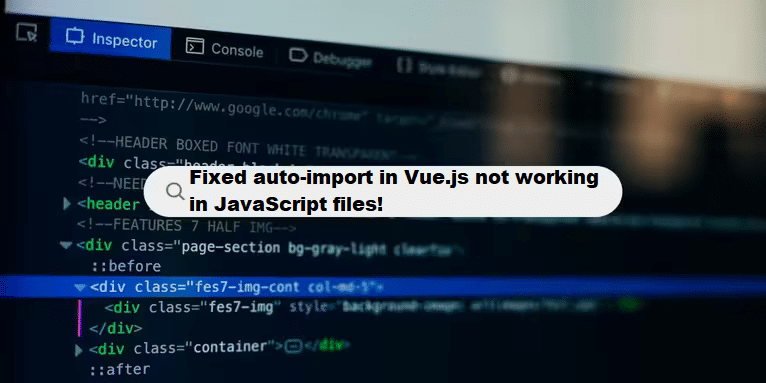If auto-import in Vue.js isn’t working as expected, especially in JavaScript files, there are a few potential causes and solutions to check:
1. Missing Plugin or Incorrect Configuration
- Ensure that you have installed the necessary auto-import plugin, such as unplugin-auto-import.
- The plugin should be configured correctly in your
vite.config.jsorwebpack.config.js. Example configuration for Vite:
#javascript
import AutoImport from 'unplugin-auto-import/vite';
export default defineConfig({
plugins: [
AutoImport({
imports: ['vue', 'vue-router'], // Specify libraries for auto-import
}),
],
});If you’re using Webpack, the setup would differ slightly.
2. Auto Import in .js vs .ts Files
Some auto-import tools work more seamlessly with TypeScript (.ts) files and might not work well with JavaScript (.js) files. Ensure that the auto-import plugin you’re using supports JavaScript files, or consider switching to TypeScript for better tooling compatibility.
3. Incorrect Imports in the File
- Ensure you don’t have explicit imports in the JavaScript file that might conflict with auto-import. For instance, manually importing the same module that auto-import is trying to handle can cause issues.
4. Caching Issues
Sometimes caching can prevent changes from taking effect. Clear your build cache and restart the development server to ensure all updates are applied correctly.
5. ESLint or Prettier Conflicts
Linters or formatters like ESLint or Prettier may interfere with the auto-import functionality by flagging or auto-fixing imports. Ensure that your ESLint configuration is compatible with auto-import:
#json
{
"rules": {
"no-unused-vars": "off" // Turn off unused var rule to prevent conflicts with auto-import
}
}
6. Check the Vue Version
If you’re using an older version of Vue (such as Vue 2), certain auto-import features may not work as expected unless configured for that specific version.
Checking these steps should help you troubleshoot why auto-import isn’t working in your Vue.js project.
Reducing Bugs with Coding Filters in Complex Applications!
Coding filters can help reduce bugs by simplifying complex application logic. When developers use filters to isolate specific tasks, they decrease the likelihood of errors caused by unhandled conditions or improper data handling. This leads to more stable applications with fewer issues.




